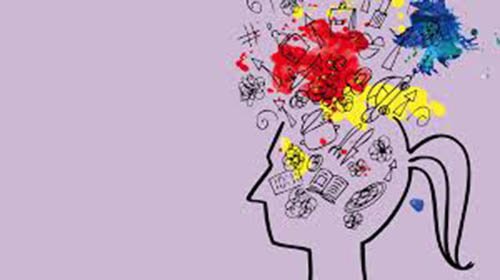Cognitive Behavioral Therapy
What is Cognitive Behavioral Therapy (CBT) And Is It Effective?
Cognitive Behavioral Therapy (CBT) is a research-driven, empirically-supported approach to counseling that can treat a broad range of conditions, including depression, anxiety, substance use disorders, insomnia, stressful life transitions, and eating disorders—just to name a few.
At its core, CBT emphasizes and explores the connection between thoughts, feelings, and behavior. Its unique healing strategies help clients challenge negative thinking patterns, modify present behaviors, and build effective coping skills through emotional and behavioral insight.
Founded in the 1960s by Dr. Aaron Beck, Cognitive Behavioral Therapy was designed with the acknowledgment that emotional distress often stems from how we think and feel about experiences and events. Dr. Beck’s work with clinically depressed clients who held rigid cognitive beliefs about the world sparked the idea that beliefs themselves might contribute to certain mental health concerns, particularly depression. Beck believed that "automatic thoughts" influence behavior—and understanding the connection between beliefs, feelings, and behaviors can be a powerful resource for creating a positive, more realistic outlook on life.
In the decades since, Cognitive Behavioral Therapy has proven to be one of the most effective treatments for depression and anxiety. According to research, CBT counseling can lead to significant improvements in quality of life and is considered the "gold standard" for talk therapy.
In fact, "CBT is the most researched form of psychotherapy...CBT theoretical models/mechanisms of change have been the most researched and are in line with the current mainstream paradigms of human mind and behavior" (David et al., 2018). Cognitive Behavioral Therapy is also endorsed by many renowned organizations, including the World Health Organization.
How Does CBT Therapy Work?
Most of us spend a lot of time on autopilot, entrenched in how we think, feel, and move through this world without really understanding or even being aware of it. That’s largely because our bodies and minds are hard-wired for self-preservation, which means we often have to make split-second decisions—sometimes without conscious thought.
For example, we might jerk backward before touching a hot stove, even before our pain receptors catch up to us. If we identify our automatic responses in relationships and patterns across various life situations, we can start to gain a more realistic perspective and intervene with our own behavior.
CBT helps us do that by interrupting the automatic response system and placing the client in direct, conscious control of their lives. It helps uncover and challenge dysfunctional beliefs about the world, current perspectives, and even how we see ourselves.
CBT counseling can be especially effective because it gives people ways to be accountable for their own healing. It offers deep insight into the self and the ways in which individuals may be getting stuck in unhelpful thinking patterns or impulsive behavioral responses. CBT therapy can also identify what might be responsible for certain behaviors, coping mechanisms, relationship dynamics, or emotional reactions. Not only that, it also gives clients tangible, practical ways of replacing unproductive thoughts or behaviors with healthier and more realistic alternatives.
Our goal at Key Counseling Group is to help you develop an increased sense of self-awareness—insight into your emotions that reveals the explanation behind faulty thinking patterns or unhealthy defense mechanisms. We want to provide you with a model and tools for dissecting your emotions, understanding their motivations, and modifying your behaviors outside of sessions.
In essence, CBT can make you an expert on yourself, giving you domain over your own behaviors, thoughts, and feelings, so you’re no longer controlled or defined by them.
Who Can Cognitive Behavioral Therapy Help?
Our CBT counselors at Key Counseling Group work with adults, couples, individuals, and families who experience depression, anxiety, addiction, or substance use disorders, as well as adjustment difficulties, including grief, loss, and life transitions. So not only is CBT highly effective, but it’s also very flexible in its scope.
In our sessions, we like to start with the "here and now,” addressing those concerns that are causing the most immediate distress. That’s because we believe a person’s current reactions to life events, relationships, and situations are usually indicative of a longer pattern of built-up responses over time. By discussing what's bringing a client into therapy now and talking about present situations, we can simultaneously uncover and bring clarity to past life events that shape those responses in the present.
In addition to Cognitive Behavioral Therapy, we often incorporate elements of other therapeutic models, including Dialectical Behavior Therapy (DBT), motivational interviewing, person-centered approaches, and strength-based practices. This allows us to provide a tailored treatment plan for each individual. And because CBT uses a structured approach to healing, it often takes less time to see results than other forms of traditional talk therapy.
Let’s See What Kind Of Difference CBT Can Make In Your Life
If you are ready to change the way you think, feel, and move through this world, our highly trained CBT therapists at Key Counseling Group would be honored to help. Contact us today for your free consultation to see if Cognitive Behavioral Therapy is right for you.
Contact Us Today:
Recent Posts
Posts Coming Soon
675 Seminole Ave NE STE 111, Atlanta, GA 30307
321 W Hill St., STE 9,
Decatur, GA 30030
2002 Macy Dr,
Roswell, GA 30076













